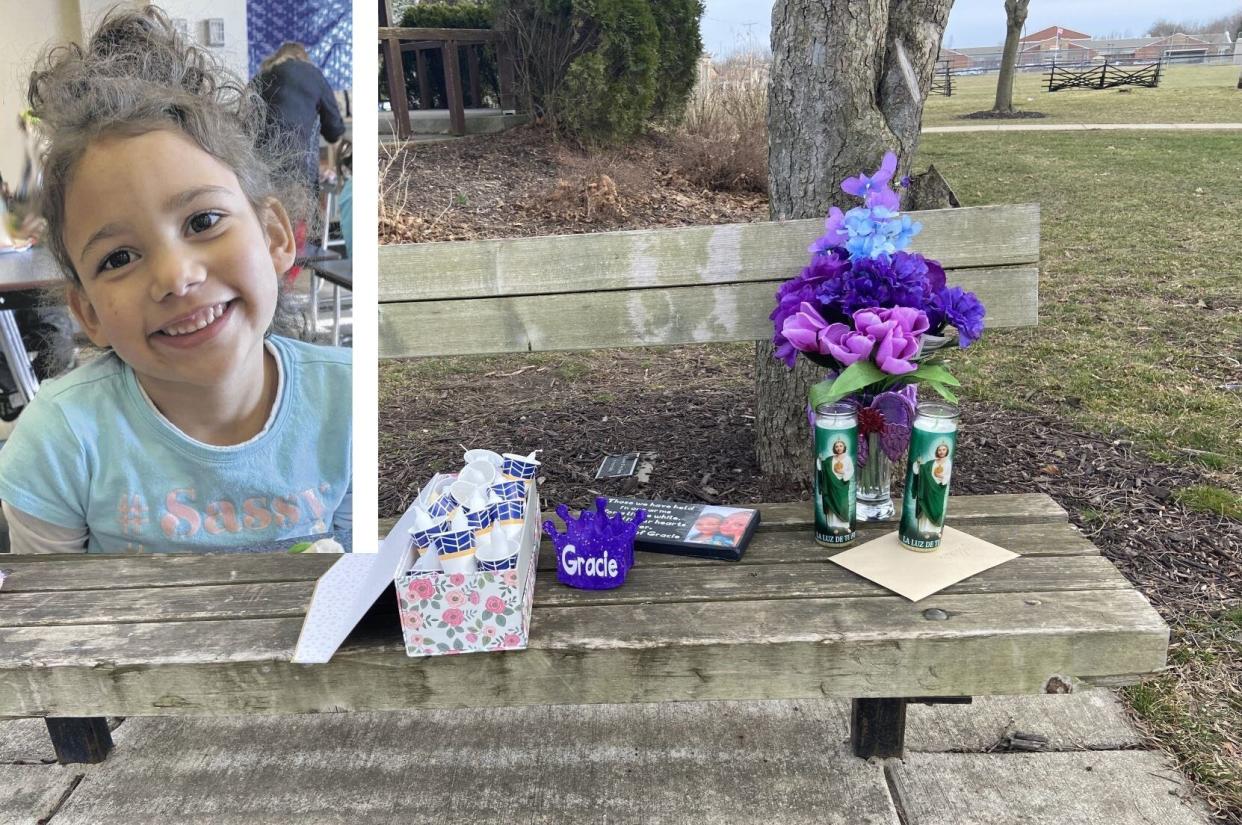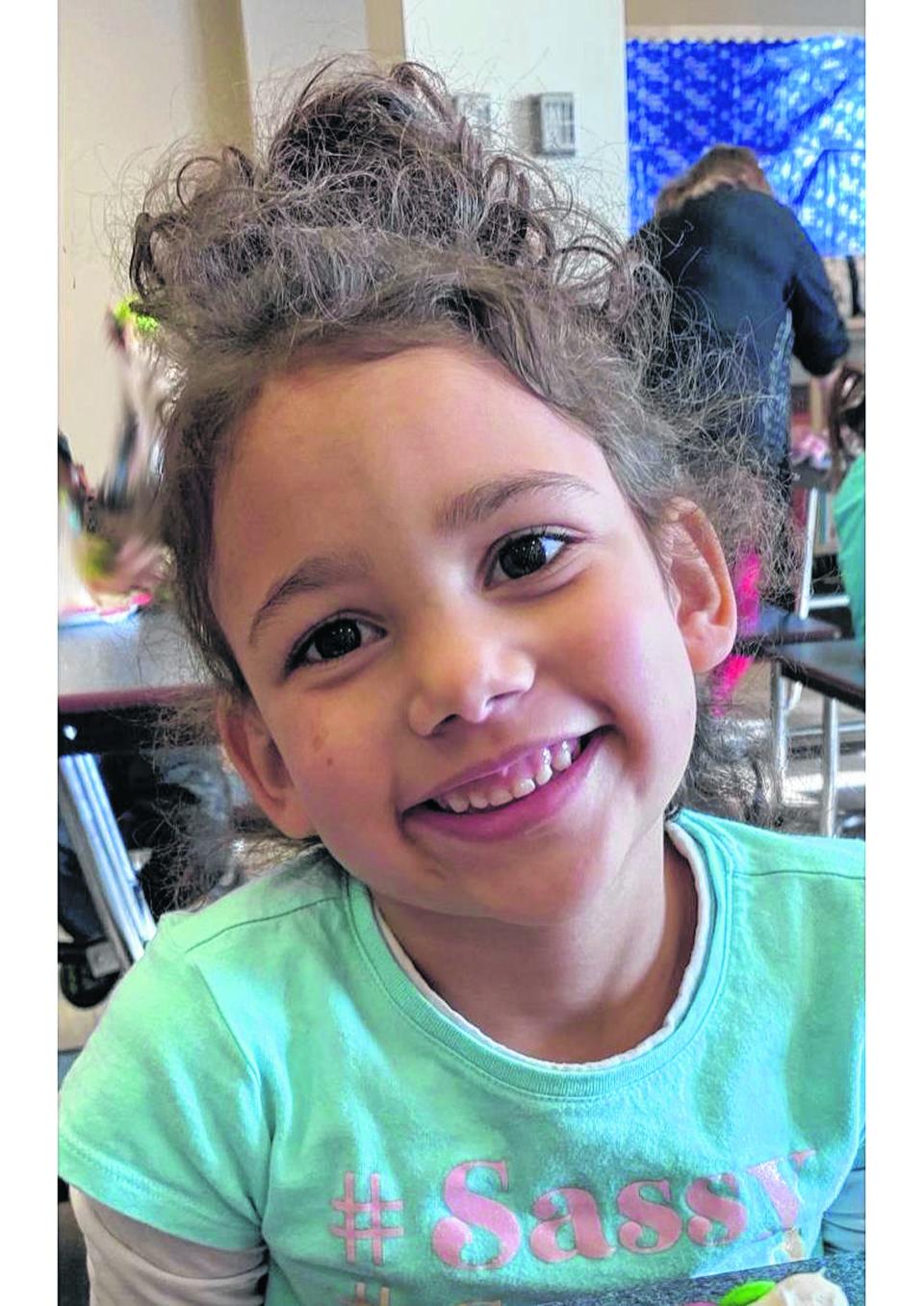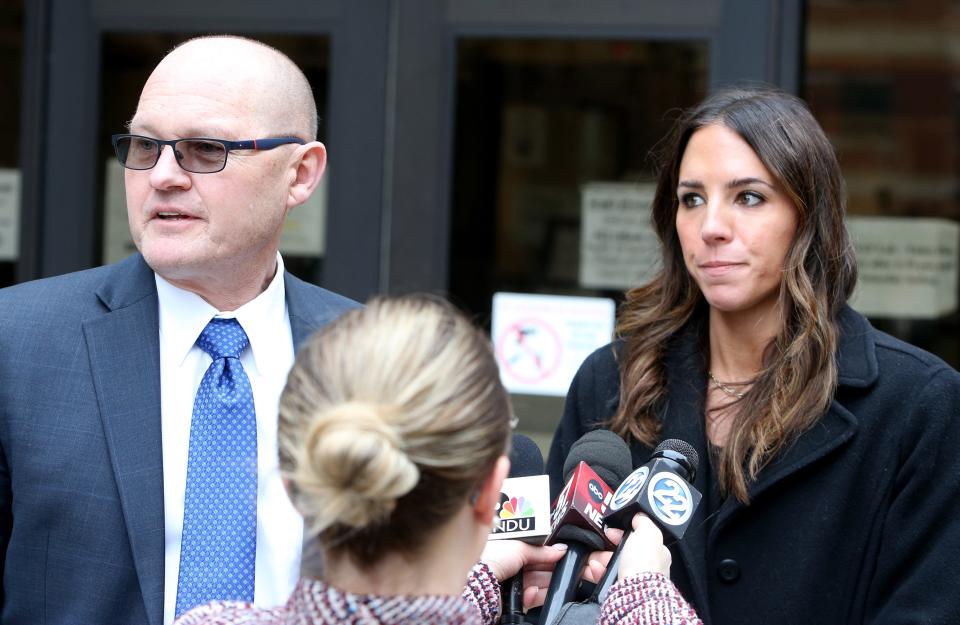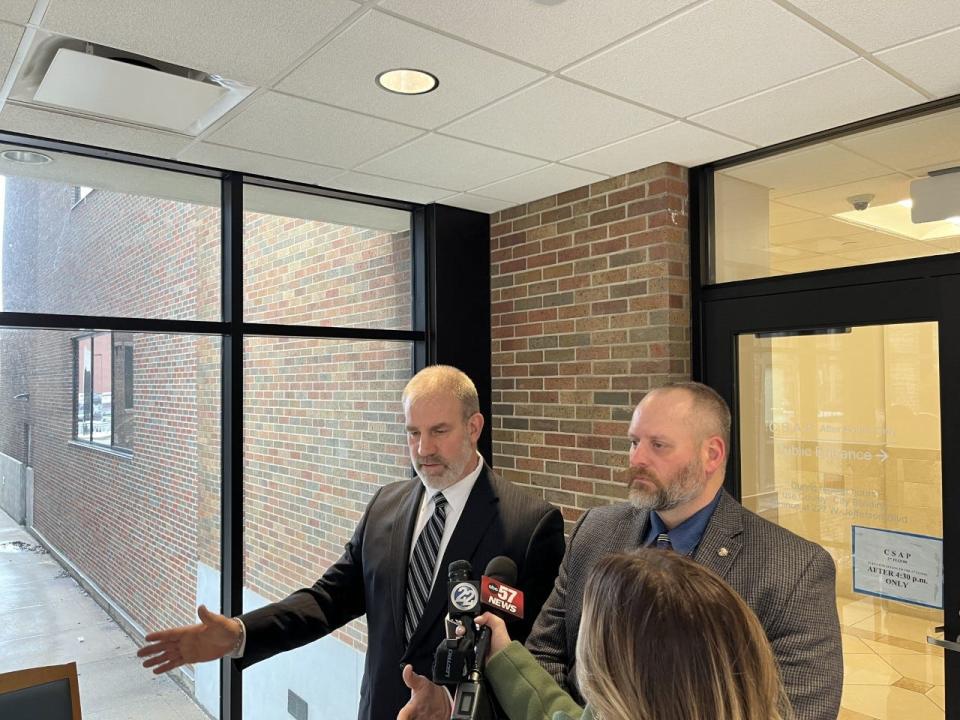Anthony Hutchens sentenced as a juvenile to 55 years for the murder of 6-year-old Grace Ross

SOUTH BEND — St. Joseph Superior Court Judge Jeffrey Sanford sentenced Anthony Hutchens on Friday as a juvenile to a total sentence of 64 years for the March 2021 murder and molestation of 6-year-old Grace Ross in a wooded area near her home at an apartment complex in New Carlisle.
The sentence included 55 years for murder and nine years for child molestation. The sentences are to be served consecutively, and Anthony has already served 748 days for the murder charge.
Sanford found Anthony guilty of murder and child molestation after a two-day bench trial that concluded Jan. 26.
The verdict: Teen found guilty of killing, molesting New Carlisle 6-year-old
Sanford suspended those sentences under IC 31-30-4-2(b) and placed Anthony in an Indiana Department of Corrections juvenile facility. According to the St. Joseph County Prosecutor's Office, as a condition of the suspended sentence, Anthony must successfully complete placement at the juvenile facility.
Once Anthony turns 18, the juvenile facility will send Sanford a report on Anthony's time there. Sanford will then decide whether Anthony should remain at the juvenile facility until up to his 21st birthday, to sentence Anthony to an adult facility, to place him in community corrections or to discharge him from his sentence.
If and when Anthony is released, he will have to register as a violent sex offender.
Anthony's appointed public defender, Jeff Kimmell, said a St. Joseph County public defender appointed by the court will have 30 days to appeal Anthony's sentence.
Shortly after the sentencing, Grace's mother, Michelle Ross, posted on the Facebook page Justice for Grace Ross, "I'm sorry baby girl, you deserved better," in reference to the sentencing decision.
Two years of criminal proceedings
At about 6:30 p.m. March 12, 2021, Grace's family reported her missing after she had last been seen in the area of Chapman Drive. Her body was found two hours later in a wooded area behind the Prairie Ridge Apartment Complex.
An autopsy by Jared Brooks, a forensic pathologist, found the cause of her death to be homicide by asphyxiation. It also revealed blunt force injuries to Grace's pelvic region.
At the trial, prosecutors showcased DNA evidence and a video-taped statement from Anthony as proof the teenager, then 14, killed and molested Grace. Ultimately, Sanford found prosecutors proved the charges beyond a reasonable doubt.
Vigil for Grace: New Carlisle residents come together to express love for 6-year-old found dead Friday
The sentencing concludes more than two years of criminal proceedings against Anthony that have included multiple rounds of evaluations and hearings that started in probate, or juvenile court, but later moved to adult, or superior, court. After the trial, Kimmell said he would appeal the verdict based on his contention that the trial should have been held in juvenile court.
On Friday, Anthony entered the courtroom in handcuffs and wearing an orange jumpsuit and flip flops with socks. The long, stringy dark hair in his mugshot is now shorter, though the right side still nearly covers his eye and hid his face from the witnesses and members of the media gathered in the courtroom for the sentencing.
Anthony's mother, dressed in jeans and a blue sweatshirt, sat alone in the front row, nervously picking at her fingernails. She waved at her son before the hearing began, though his hair prevented her from seeing his face for most of the proceedings.
Throughout the hearing, Anthony was silent and displayed little emotion, his gaze angled down slightly.
Grace's family spoke at the sentencing
Grace's mother and Grace's paternal grandmother, Kelly Howard, spoke at the sentencing as witnesses for the state. They emotionally shared how Grace's murder has impacted them over the past two years.
Ross said she still remembers having to identify her daughter from a picture on a detective's phone the night she was killed.
"Every time I close my eyes, all I could see is the picture of her laying in the woods, alone, on the detective's phone," Ross said.
She said she often thinks about the things her daughter will never get to do. Grace was supposed to play baseball later that year, and, Ross said, she had planned to sign Grace up for soccer the day after she was killed.

"Grace will never get the chance to grow up or graduate high school or drive a car," Ross said, and Grace will never get to meet her siblings, a younger brother and sister, who were born after Grace's murder and will only know their big sister through "pictures and memories."
Howard said she has known no greater love in her life than being "Grace's Nana." She said she never knew she could love someone more or as much as her children until Grace was born.
"It's a whole different kind of love. Grace loved me, and I loved her," Howard said. "We had a very special bond."
Between tears, Howard asked aloud questions she said she's been thinking to herself since her granddaughter died: "When did my sweet grandbaby start to be afraid?" "How long was she in pain?" "How long was she crying out for her mom or her Nana?"
Howard said she believes Anthony's decision to kill Grace was premeditated and conscious. She said she hopes to "never live to see the day" he is out of prison.
"I will always only know my granddaughter til the age of 6 …," Howard said. "Until Grace can come home to her family, Anthony shouldn't be able to come home to his family."
Before Anthony was sentenced, Howard said seeing him sentenced to an adult facility would, in a small way, help ease her grief because at least there would finally be certainty as to how long Anthony would be incarcerated after waiting for two years.
Rehabilitation versus certainty argued
Dr. Michael Jenuwine, an attorney and licensed clinical psychologist, was called as a witness for the defense. Jenuwine said he has spent about 20 hours with Anthony, including 16 hours administering personality tests and other mental health assessments.
Jenuwine said he found Anthony to have a "whole host" of mental health issues, but no history of treatment. He said Anthony meets the criteria for an autism spectrum disorder and likely also has anger management and emotional issues. Additionally, he said, following Anthony's arrest for Grace's murder when he was 14, he was determined to be functioning at the developmental level of an 11- or 12-year-old.

"After meeting with him yesterday, I have no reason to believe he's advanced much beyond that," Jenuwine said.
Jenuwine argued that Anthony should remain in a juvenile facility and said he thinks the teen can be rehabilitated, citing that Anthony has no prior criminal history. Jenuwine also said that he believes Anthony was abused by his stepfather as a child and may have witnessed domestic violence in the home while growing up.
Kimmell argued that due to Anthony's age, lack of criminal history and possible mental health concerns, he should be sentenced as a juvenile.
"You're going to be making a sentence today for a 16-year-old for something he did at 14 with the developmental capacity of an 11-year-old," Kimmell told the judge.
Meanwhile, St. Joseph County deputy prosecutor Christopher Fronk argued that whatever caused Anthony to commit murder likely cannot be fully addressed in the two or so years he'd spend in a juvenile facility. Plus, Fronk added, Anthony could receive the same services he has been receiving in the juvenile facility in an adult facility and would be housed with juvenile offenders until he was at least 18. The State recommended Anthony serve 67 years in the adult Department of Corrections.

Fronk said that no matter how young or developmentally delayed Anthony may have been when he committed the crime, you learn that "you don't hurt people" by the time you've finished kindergarten.
"Grace knew that …," Fronk said. "Even an 11- or 12-year-old knows it's not right to do what he did."
Fronk called Anthony's crime "as heinous and aggravated as it gets with only one victim," adding the only way it could have been worse is "if there had been more victims."
Coming back in two years for another hearing once Anthony is no longer a juvenile "deprives the victim's family and the community" of the certainty of knowing what is going to happen in this case, Fronk argued, referencing Grace's grandmother's statement.
"I've asked the court to opt for certainty, opt for the treatment that's available (and) sentence Anthony as an adult," Fronk said.
Sanford sentences Anthony as a juvenile
Before sharing the official sentence, Judge Sanford addressed Grace and Anthony's families, saying, "I can only speculate how sad Grace's family feels," and "I imagine Mr. Hutchens' mother feels very alone in the courtroom."
The judge read from a report by the juvenile detention center where Anthony currently resides that stated that Anthony has "been well behaved in detention," spends most of his time reading or writing alone, and "has not caused a single problem" since entering the detention center. Sanford also said doctors recommended that Anthony be sentenced as a juvenile.
Even so, the judge added, likely due to Anthony's autism, "he doesn't have the wiring to feel remorse" in the way that he should. This may be able to be addressed in treatment, he said.
"Whatever sentence I impose today won't ease anyone's pain," Sanford said, "and it won't bring Grace back."
Email Tribune staff writer Claire Reid at cereid@gannett.com.
This article originally appeared on South Bend Tribune: Judge sentences Anthony Hutchens as a juvenile for murder of Grace Ross

